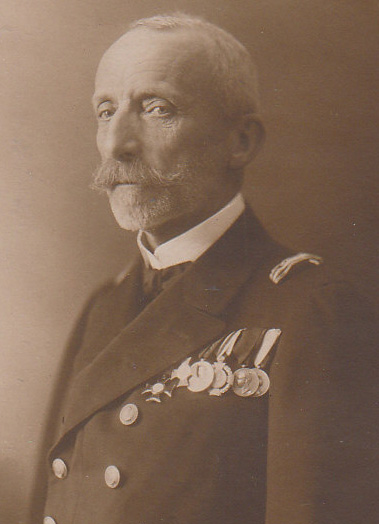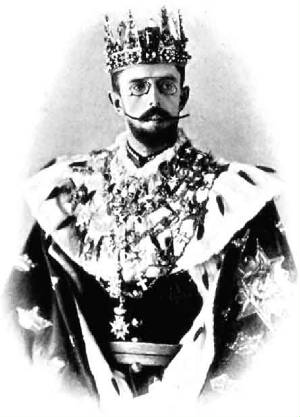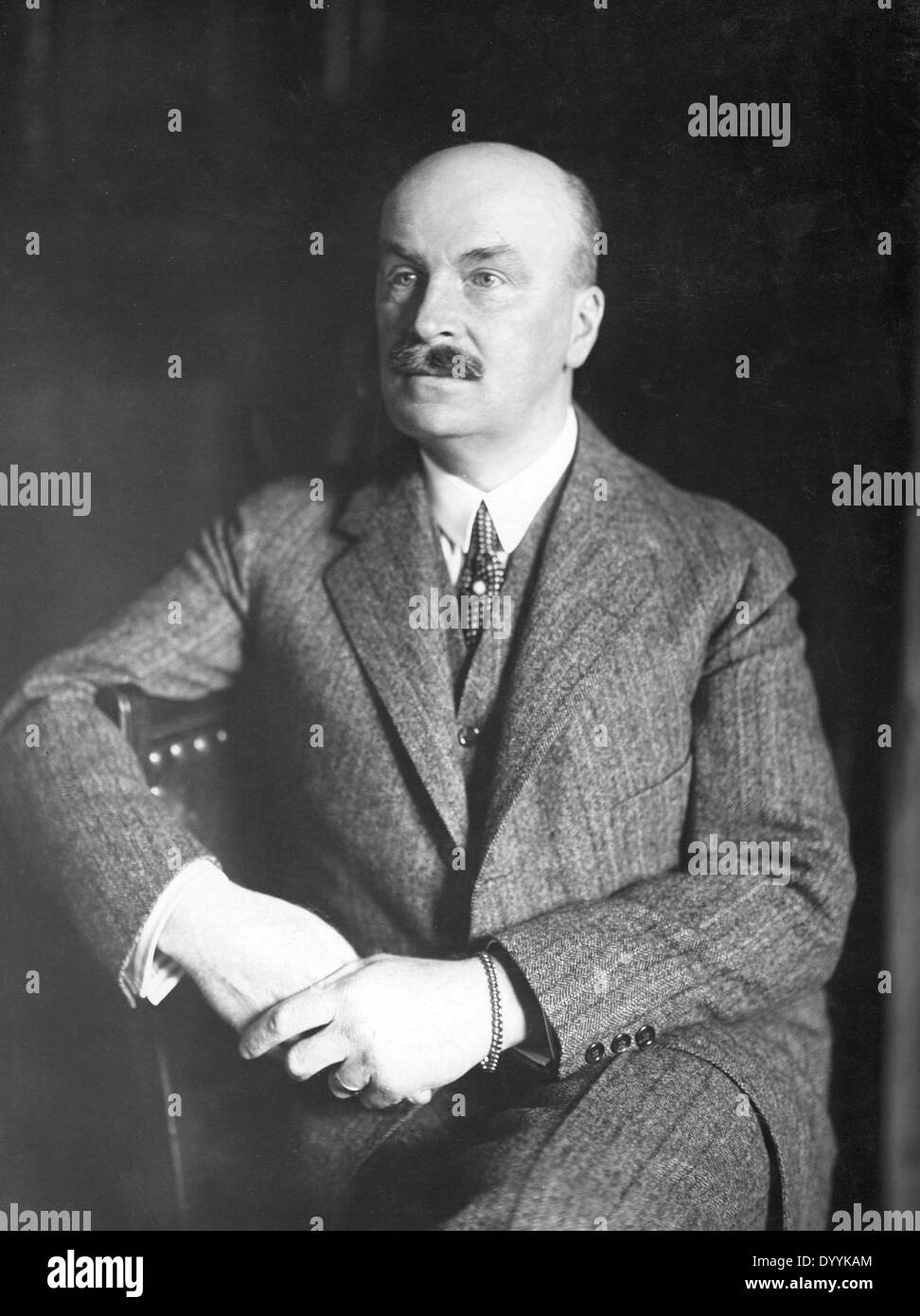The New Order
With most nations of the Entente having been dealt with, the Germans now turned their gaze towards Eastern Europe. While the French were fighting their civil war, a bigger and bloodier one was raging across Russia. While the Whites and the Reds tore each other apart, there had been no word as to the whereabouts of the Romanov family. Some speculated they had either fled deep into Siberia or were trying to hide somewhere.
While all of this was going on, a power vacuum was underway across the non-Russian lands. Ukraine, the Baltics, the Caucasus, and Central Asia all rose in rebellion against the dying empire, forming their states. Amongst this chaos, the Germans crafted plans for their sphere of influence in the east.
Poland
In Poland, negotiations were already underway for an independent state. While a provisional government had been set up and a monarchy proclaimed in 1918, a king hadn’t been chosen by 1919. Fearing the whole process was going to take forever, the Germans and Austrians backed their preferred respective candidate: Friedrich Christian of Saxony & Archduke Charles Stephen of Austria.
Ultimately, Charles Stephen won due to him able to speak fluent Polish and two of his daughters were married to Polish princes belonging to the noble houses of Radziwill and Czartoryski. He had gained permission from Kaiser Karl to take the throne and all was set. In 1920, Charles Stephen was crowned as Karol Stefan I of Poland. The Polish nation was back on the map of Europe after more than a century of nonexistence.
Karol Stefan I, King of Poland (1920-1933)
(1860-1933)
The German Empire, while giving nominal independence to Poland promised to them in exchange for joining the German side against the Russians, would integrate the country into their economic block. The Polish economy was to be dominated by the Germans with Berlin controlling the Polish railway system, shipping on the Vistula, and industrial areas in Dąbrowa basin, Radom and Kielce.
Lithuania
Lithuania was to become an independent monarchy. Originally, it was hoped that the German Kaiser or even his youngest son Joachim would take the crown creating a personal union between Prussia and Lithuania. However, this proposal was blocked by the houses of Saxony and Bavaria who feared further Prussian dominance of the empire. Saxony instead proposed its candidate for the throne.
However, the crown was eventually elected to be given to Wilhelm Karl, the Duke of Urach. Wilhelm seemed to be the perfect candidate due to the fact he was Catholic, not an heir to the throne of Württemberg, had no connections to Poland, and had no close relations to the house of Hohenzollern. He would take the name of Mindaugas II after the first Grand Duke of Lithuania, Mindaugas I.
Mindaugas II, King of Lithuania (1920-1928)
(1864-1928)
The Kingdom of Lithuania was to include all Lithuania majority territories excluding those in Prussia. As well, it would include the Vilnius region which had a Polish minority in the countryside but a city full of Lithuanians.
The Baltic Region
In the Baltics, the region would be split into 3 puppet states: The Duchy of Courland and Semigallia in western Latvia, In the central region between Northern Latvia and Southern Estonia, Livonia was established. And in the North a smaller Estonia.
However, shortly after the Treaty of Brest-Litvosk, a group of 35 Baltic Germans, 13 Estonians, and 10 Latvians proposed the unification of the 3 states. The United Baltic Duchy would be made up of 7 cantons: Kurland (Courland), Riga, Lettgallen (Latgale), Südlivland (South Livonia), Nordlivland (North Livonia), Ösel (Saaremaa), and Estland (Estonia). The capitol would be Riga.
Duke Adolf Freidrich of Mecklenburg-Schwerin, the former governor of German Togoland in exile since its occupation by the British and French was to be the Duke. However, he wouldn’t be a sovereign monarch but a subordinate to the German Kaiser, similar to other princes of the German Empire.
Adolf Friedrich, Duke of the Baltics (1919-1969)
(1873-1969)
In most cases, representatives from almost every ideology in Germany demanded the integration of Lithuania and Courland. This was for two reasons. The first was that these territories were directly adjacent to the Reich and the second was that they did not have Russian populations and even enjoyed a local Baltic- German minority. Indeed the Baltic-Germans made up most of the aristocracy and upper class of the region when it was under Russia. As well, Germany had a valid claim to it on historical grounds as the Baltics had once been dominated by the Teutonic Order the predecessor of Prussia.
By favoring the Baltic-Germans and Russian-German colonizers, and displacing local Latvians and Lithuania, the territories of Courland and Lithuania were to be incorporated within the coming decades. After that, the rest of the Duchy would be absorbed.
This process of 'Germanization' would later be enacted only to meet resistance from the local Latvian and Estonian populations who didn't like the idea of being kicked out of their homes and be replaced by German colonists. The plan would eventually fail and the whole process was stopped.
Finland
In Finland, Germany wouldn’t as much have a puppet as it would have a closely aligned nation. In a Friendship Treaty signed between the two nations, Finland was prevented from making any alliances without German consent, could not raise tariffs on German imports, and had to provide military and naval bases for German use. In the case of territory, the country would maintain its old grand duchy borders but would hand over the Aland Islands to Sweden.
Finland would become a monarchy ruled by Prince Carl, Duke of Vastergotland. He would later be crowned in Helsinki as Karl I of Finland with a government led by Juho Kusti Paasikivi.
Karl I, King of Finland (1918-1951)
(1861-1951)
White Ruthenia
Belarus was intended to remain a part of Russia under the Treaty of Brest-Litovsk. However, the Belorussian People’s Republic did end up declaring its independence. Though the Germans refused to recognize it out of fear of reigniting the conflict with the Russians, they saw it as part of the implementation plan of buffer states within Mitteleuropa and started bringing it into its fold.
The Germans pressured the Byelorussians into becoming a monarchy. Once that was done, a regency council was set up where they quickly picked Prince Henry of Prussia. To prepare for his new role, Henry learned Russian and converted to Orthodoxy. He later arrived in Minsk and was crowned Genrikh I of White Ruthenia.
Genrikh I, King of White Ruthenia (1919-1929)
(1862-1929)
Ukraine
Ukraine had been the site of chaos during the Great War with Anarchists, Bolsheviks, White Russians, Cossacks, and Germans all fighting for control. Each side wanted control of one of the region’s most valuable assets. Grain. Yes, Ukraine was the breadbasket of Europe supplying vital grain to the Central Powers who were suffering under the Entente blockade. This was one of the main reasons why Ukraine was also the site of a quiet internal struggle between the two allies Germany and Austria-Hungary.
Fearing too much German control, Vienna wanted Ukraine to be an independent ally of Austria-Hungary. Thus, they supported Archduke Wilhelm Franz von Habsburg in his effort to become king of Ukraine by helping his efforts to claim popularity among the Ukrainian people and claim the throne under his Ukrainian name ‘Vasyl Vyshyvani’. Vienna was so desperate to get Ukraine on their side and import the vital grain it had that they offered Eastern Galicia in exchange for it.
Vasyl I, King of Ukraine (1919-1948)
(1895-1948)
Unfortunately for the Austro-Hungarians, though Wilhelm cultivated support from the peasantry he was sidelined by his German-backed competitor who barred him from even entering Kyiv out of fear it would cause a coup. Ukraine would not be under Vienna’s thumb.
Instead, as with most things, Germany would prevail. The Germans supported Pavlo Skoropdskyi who had toppled the Ukrainian People’s Republic in a German-backed coup in 1918 proclaiming Ukraine to be a Hetmanate under his rule though he spoke little Ukranian himself.
Pavlo Skoropadskyi, Hetman of Ukraine (1918-1960)
(1873-1960)
Unlike other states carved out of Russia which would become German vassals, Ukraine, while being a puppet state, would have higher leeway and independence simply due to its size and resources. With Germany in control of it, Ukraine would become the breadbasket of Mitteleuropa.
Fearing a fallout in relations, the Germans proposed a compromise. Wilhelm would take the throne and become king of Ukraine, but with the support of the German-allied Hetman who would hold incredible civilian and military powers. Thus, Vasyl I was crowned but would rule as a figurehead.
Every Man for Himself
According to the terms of the Treaty of Brest-Litovsk, Russia was to return the territories of Ardahan, Kars, and Batumi which the Ottoman Empire had ceded after the Russo-Turkish War of 1877.
Though Brest-Litovsk ended the war between Russia and the Ottoman Empire, the battle in the Caucasus would continue between the various factions vying for control of the region. With Russia pulling out of the war and no real power in control of the Caucasus, local politicians opted to proclaim independence as the Transcaucasian Democratic Federative Republic which compromised the territories of Georgia, Armenia, and Azerbaijan.
But with no agreement with Constantinople made, a state of war thus began between Transcaucasia and the Ottoman Empire. The Ottomans pushed past the border demarcated in Brest-Litovsk and continued their invasion of the region in a bid to secure it for themselves. This, coupled with the weak foundation of the republic and disunity amongst its peoples caused Transcaucasia to quickly collapse a month after its proclamation. Georgia would declare its independence first followed by Armenia and Azerbaijan.
This did not stop the Ottoman advance, however. As their troops pushed through Georgian and Armenian lines, their territorial claims stretched past the Brest-Litovsk line to include Eastern Georgia and Armenia including Batumi and Alexandropol.
The Caucasus was now in complete disarray as the newly independent Georgia and Armenia fought the Ottoman Empire, Azerbaijan and each other over territorial disputes while Bolshevik forces seized Baku.
Things were further complicated when the Germans entered the fray. Upon declaring independence, Georgia proclaimed itself to be a protectorate of the German Empire causing tension between Berlin and Constantinople as the Ottoman Empire was now technically at war with its allies ally. With a foothold in the Caucasus, Berlin began to formulate plans to seize the precious oil in the region particularly setting their sights on Baku under Bolshevik control since April.
The situation became a race between the two allies to get to Baku first with Germany and Georgia on one side and the Ottoman Empire and Azerbaijan on the other with Armenia caught in the middle. Tensions became critical when German and Ottoman troops shot at each other with Germany threatening to remove its entire military mission from the Ottoman Empire.
The result of this chaos was the Treaty of Batum in June between the Ottoman Empire, Armenia, Georgia, and Azerbaijan. Georgia agreed to cede Batum and the area around it to the Ottomans while Armenia ceded parts of Yerevan provinces around Alexandropol. The Ottomans also wanted a railroad to be built to connect Kars and Julfa with Baku. The new Armenian state, through which the transport corridor would run, was to give free right of passage. Over a million and a quarter of Armenians in the ceded territories would be purged in the Armenian genocide.
By the war’s conclusion, the Ottomans would have Azerbaijan under their sphere of influence while the Germans would have Georgia and advantageous rights to the Baku oil fields. Armenia, unfortunately, would have the short end of the stick. Left with no support, the Armenian rump state that would survive would control little more than the region around the capital of Yerevan.
Delusions of Freedom
During the Russian Civil War, Central Asia had become a middle ground between clashing White and Red forces as they attempted to overcome each other and the various independence movements of the region.
In what is now Kazakhstan but was then the Governor-Generalship of the Steppes, pro-White politicians known as the Alash Orda proclaimed the Alash Autonomy in December of 1917. With a capital in Semey, then known as Alash-Kala, the Alash Orda created a Kazakh state which would a brief moment of independence before being consumed by the Soviet armies.
Further South in Turkestan we have the Basmachi Movement. Following the Soviet invasion of Central Asia, the Ulema Jamiati a clerical Muslim group convened the Third Congress of Central Asian Muslims on November 12, 1917. They offered to form a regional council under the Soviets whose seats would be split 50/50 between Muslims and non-Muslims. However, the Soviets rejected this proposal and instead planned to set up a rival government.
So, on November 25, the Ulema Jamiatia called the Fourth Congress of Central Asian Muslims in the city of Kokand. They declared a new Turkestan government independent of Bolshevik Russia and later White Russia. This was the start of the Basmachi movement.
The former Russian Empire protectorates in the Khanate of Khiva and the Emirate of Bukhara would join the Basmachi Movement when their governments were overthrown by the Soviets. The Emir of Bukhara, Mohammed Alim Khan, would take control of the Bukharan Basmachi movement from exile in Afghanistan. He was the last direct descendant of Genghis Khan to lead a nation.
Mohammed Alim Khan, the last Emir of Bukhara
(1880-1944)
After the conquest of Central Asia was complete, the Basmachi turned towards guerrilla tactics with guns smuggled from the Ottomans through Persia. This went on until the early 1920s when the last of the Basmachi's were crushed by the Soviets.








